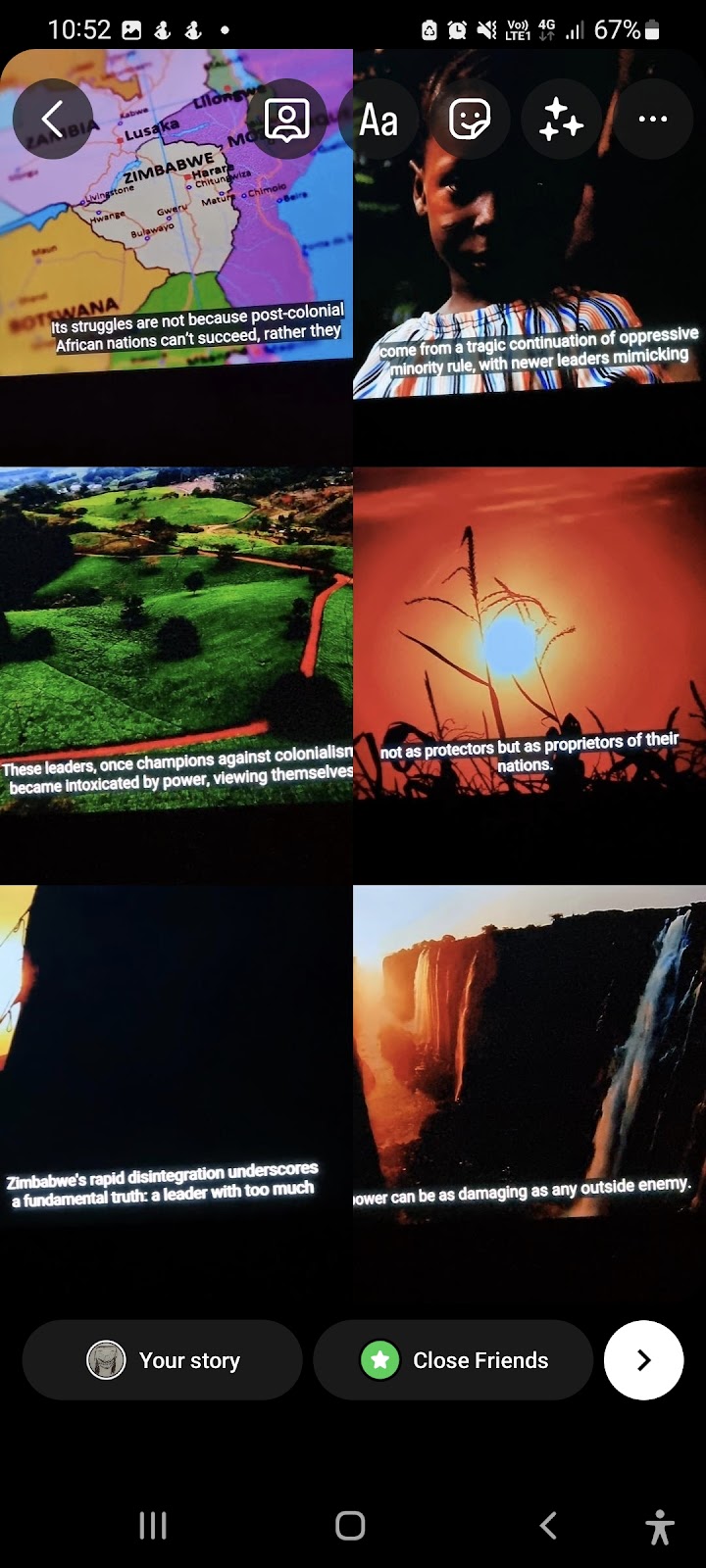Watched a documentary on the economic decline of Zimbabwe last night. Took a couple more documentaries to actually feel sleepy. My nightly auto-didactic self-gratifications last night also included a documentaries on the native civilisations of pre-colonised Mexico, and also the economic success or Peru during times of industrial revolution, having "sea gull poop" as their chief export. (For fertiliser). That apparently continued till ammonia was synthetically manufactured and that invention currently playing the most vital role in feeding more than half the human population, is one of the most vital modern human inventions.
Anyways as the documentary played out, i couldnt help but notice the similarities history of Zimbabwe has with the history of Sri Lanka, my place of birth.
Both were colonised by primarily Britain and related companies, experiencing racist political crimes in their hands:
1. Monopolisation of exports
2. Discrimination of people of the nation
Being the two most economically significant impacts of said British invasion.
Then upon freedom, both countries had brief periods of prosperity till INTERNAL conflicts in the forms of civil wars kicked in, till the superficial eradication of said internal conflicts only amped up internalised corruption and various forms of authoritarian rule, that eventually led to economic collapse.
(Zimbabwe's freedom was first initiated by British farmers aiming to keep making more profit away from the British rule, which is an outstanding difference to Sri Lankan's revolution of freedom; led by Buddhist monks, radical authors, and activists.)
Zimbabwe in comparison to Sri Lanka, went through this crisis a good 25 years prior, which is where the marked similarities feel eery and alarming. For Sri Lanka only just experienced full economic collapse, and is yet to experience the full de-industrilisation and the continued subliminal forms of authoritarian rule that it still suffers from to this day. Zimbabwe also went through multiple economic reforms which SL has yet to go through, unless the current political reforms leads to an empowered populous and actual improvements. A word of caution to Sri Lankan activists would be to not be fooled by moments of temporary economic improvements, for the ripples of corruption and economic uncertainty affects no one more than those who are affected by them the most.
Suffering has a funny way of being able to kill you, until it doesn't.
It's interesting how seemingly, the authoritarian effects of the British Invasion was mimicked by Zimbabwean leaders in their rule. Interesting how they resorted to deceit and followed a path of self interest; how they seemed to continue to see a division between them and the Zimbabwean people, like the British did, even though they are 'Babwean themselves.
And I couldn't help but compare, that behaviour with individual patterns of immoralisation. How, colloquially, "hurt people, hurt people" and how the 'Babwean and 'Lankan governments continued to disempower their people despite being independent of British rule.
The issues at hand should and does, I'm sure, hold the British of their atrocities, but the solution at hand begs the topics of education, societal healing, and political integrity to be discussed, for suffering never leaves, only to be learned to be tolerated. The comparison of politics and psychology of this topic applies really well, when I look at it in that perspective.
In parting, I think I should say, just like how 'hurt people, hurt people', in this instance, it's safe to say that "hurt communities, hurt communities".

Comments
Post a Comment